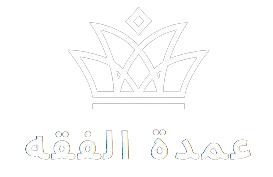In the madh-hab, anything that reaches the jawf (lit. cavity; here it refers to the abdominal and cranial cavities) through any orifice, including the eyes (if he finds its taste in his throat), ears (they said: if the fluid goes into the cranial cavity), anus, vagina (if it is liquid), or even a penetrating wound, would nullify the fast. Also, if he allows someone to cause a penetrating wound into his abdomen and the instrument reaches its cavity, his fast would be invalid; this means that, in addition to endoscopy and colonoscopy, any laparoscopic surgery would nullify the fast. The only orifice excepted from the above is the male urethra. Also, the vagina is an exception, if non-disintegrable items were introduced into it and didn’t reach beyond it. The other madh-habs generally agree with these views except that there is some disagreement over the jawf and the orifices leading to it. (H) excludes the male urethra and the eye, and they have some disagreement about the ear. (M) excludes the male urethra and penetrating wounds; they also exclude non-liquids in the anus. (S) excludes only the eye. (Z) excludes all orifices, including the nostrils. (t) excludes all orifices except the nostrils, and his position seems to be adopted by many contemporary scholars, as you may notice in the following segment. Note: The following discussion is not restricted to the madh-hab and relies mainly on the positions of the International Islamic Fiqh Academy (IIFA) of the OIC (Organisation of Islamic Cooperation).
Injections (other than nutritious ones): They do not invalidate the fast, according to IIFA.
Nutritious Injections: They invalidate the fast, according to IIFA. Enemas: Controversial. IIFA deferred the discussion on them. Many contemporary scholars allow them while fasting because even though they reach the hollow interior of the body, they do so from a route that is not natural for food or drink; it is not even close to this natural route.
Vaginal Suppositories and douches: They do not break the fast, according to IIFA.
Urinary Catheterization (Including the Placement of Dyes):
This does not break the fast, according to IIFA.
Sublingual Tablets: IIFA maintains that as long as the patient avoids swallowing them, there should be no harm because they are completely absorbed by the mucous membranes of the mouth and do not reach the hollow interior of the body.
